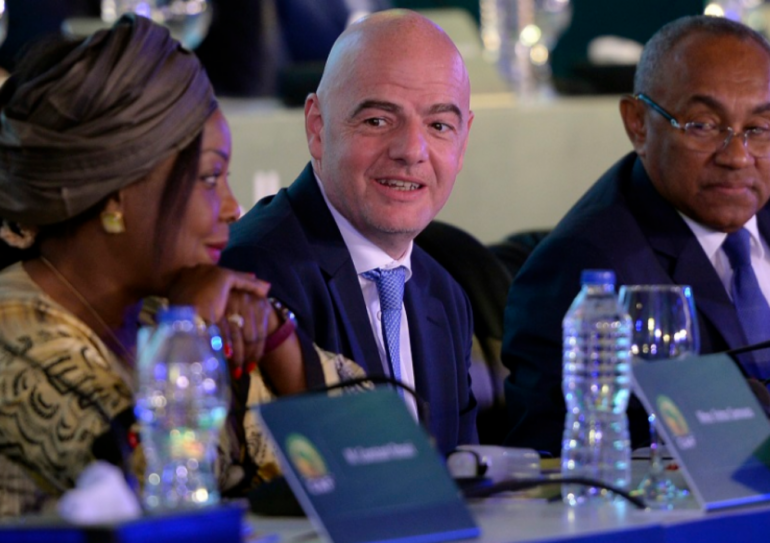The twisted tale about how Caf lost a billion dollar deal – and why the cash-strapped organization wanted out of the deal, with Fifa’s blessing.
By Pål Ødegård
On the eve of 16 March 2017, an elated Ahmad Ahmad stepped into a luxury sports car along with an Egyptian businessman outside Hotel Hilton in Addis Ababa. They were heading off to an upscale brothel to celebrate the Malagasy’s election win over incumbent president Issa Hayatou from Cameroon just a few hours earlier in the congress hall of the African Union headquarters. Most of Ahmad’s supporters, including his campaign team and Fifa president Gianni Infantino’s closest advisor, Mattias Grafström, stayed at Hilton to celebrate.
The landslide election victory over Hayatou, who had ruled autocratically for more than 29 years, also radically changed the setup of important decision-making committees like Caf’s executive committee, and the confederation’s seats on the Fifa council as Hayatou loyalists lost their places to Ahmad’s closest supporters. As the crowd in Hotel Hilton’s lobby and bars were congratulating each other with words like ‘change’, ‘freedom’ and ‘new beginning’, many of them knew they would benefit personally from the “revolution”. None of them seemed concerned about Ahmad’s Egyptian companion. Just as they hadn’t asked many questions about Ahmad’s promise in his election manifesto that the media rights contract Caf had with the French marketing rights company Lagardère would have to be reviewed for possible renegotiation.
In the end this contract wasn’t only renegotiated, but completely terminated just three years later. For the French company, who were about to sell most of their portfolio in this sector to the American investment company HIG, it was a disaster. But as we shall see, it had perha...



